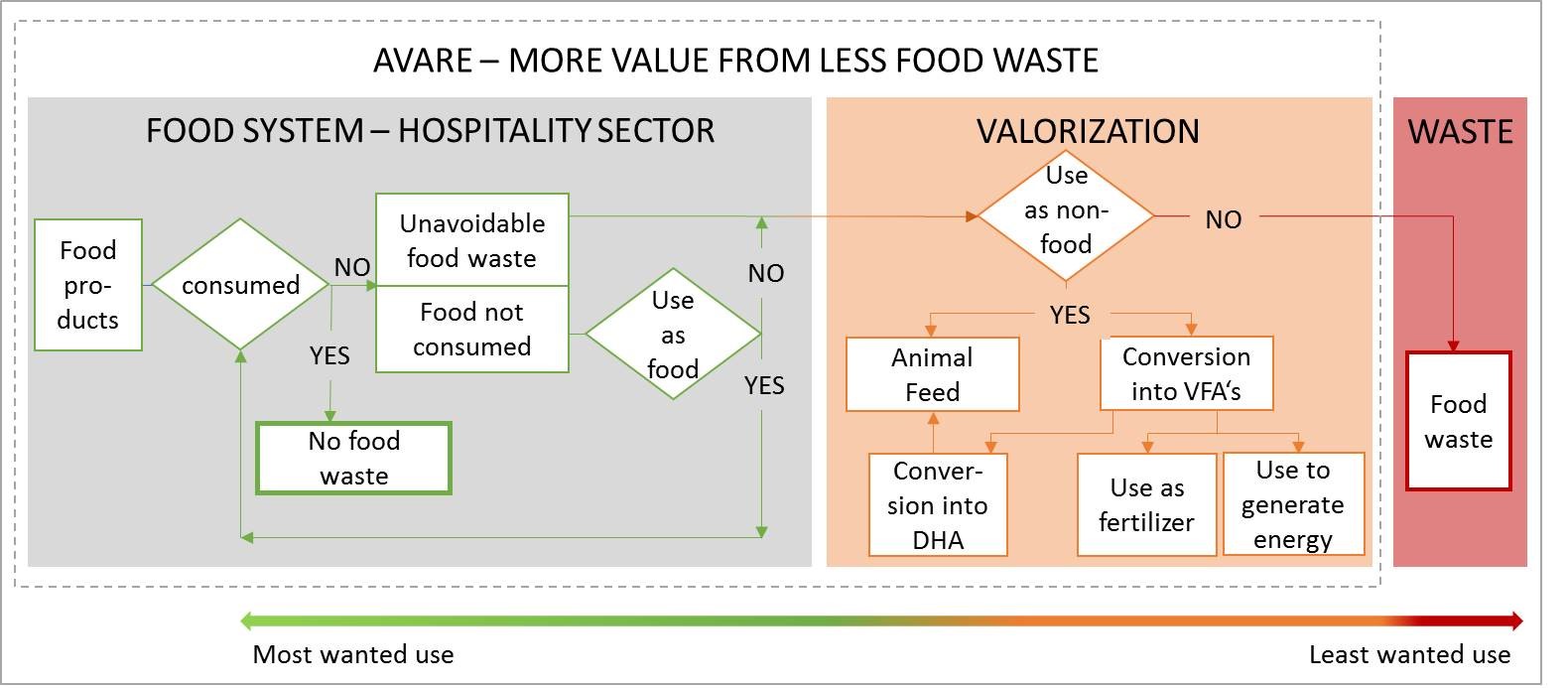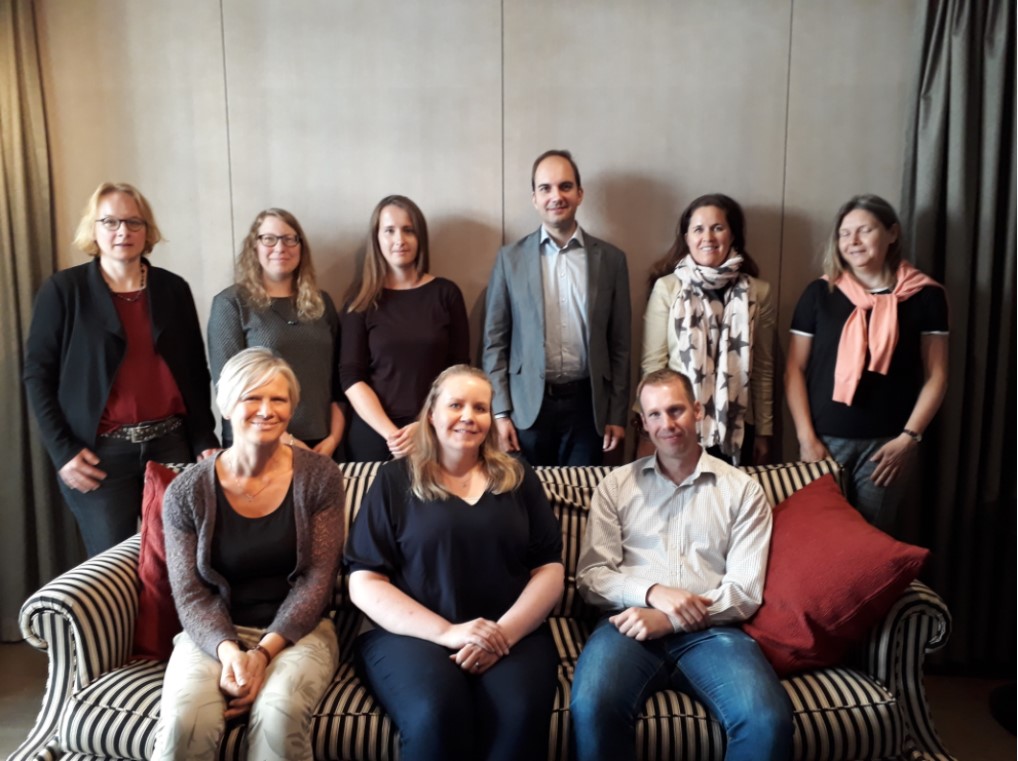Adding value in resource effective food systems

Introduction / Background
The major losses of resources in the food value chain occur at the consumer stage, in households as well as the hospitality sector. In the hospitality sector relative food losses are the highest. For instance, in Finland food losses in the hospitality sector contribute to 20% of the food sold, whereas, in other sectors the relative amounts vary from 2 to 6%. Although numerous studies have investigated how to prevent food waste, food waste reduction and re-utilization of organic materials as a resource is still lacking impetus in many sectors and countries.
This project will concentrate on identifying and evaluating of barriers, opportunities and solutions, how to prevent and reduce food waste, improve optimal use of organic waste resources to redesign the food chain and to ensure to meet consumer needs and acceptance. In parallel, this project will define the amount and composition of residues of certain areas as canteens to be used as feedstock additive in bioprocesses.
The envisaged impacts include minimization of food waste and generation of bio-based products utilizing the unavoidable and non-edible portion of food waste, either from food processing or food consumption. Outputs will include processes that flexibly exploit feedstocks to reduce costs, improve sustainability and accelerate commercial end-uses. In order to achieve this acid fermentation with monoculture will be envisaged as a bioprocess that might be faster and more efficient than traditional mixed acid fermentation.

Aim
The following are the main objectives of the project:
- Supporting the EU-level target to reduce food waste by 50% by 2030 by preventing, reducing and reusing the food waste of different sectors
- Improving the quality and value of separately collected food and food waste, by discovering the optimal methods for its redistribution, use as feed, and as a raw material for new products
- Addressing the potential problems with plastic packaging in the food chain as a potential contaminant of organic resources and waste, and evaluate those problems in light of the benefits of plastic in preserving food and reducing transport weight
- Addressing food waste as a renewable resource, supporting the business-based waste technology by co-operating closely with SME’s acting on different areas of this future business
- Quantifying and evaluating the financial, environment (including GHG emissions) and social impacts of the proposed actions
Expected results
The project provides a new concept to be applied for waste utilization. The study will improve the efficiency of food system by creating and supporting networks among food industries, authorities, municipalities, supermarkets, charity organisations and households to promote sustainable and safe redistribution and recycling of food. Technological and life-cycle assessments will resolve knowledge transferability and biosecurity issues and optimise performance and product quality.
Keywords
Food waste, hospitality sector, valorisation of waste, waste reduction

Project consortium
Coordinated by
Dr. Saija Rasi - Natural Resources Institute Finland (Luke) FINLAND
Partners
- GERMANY: University of applied Science Muenster and Technische Universität Berlin (TUB)
- SWEDEN: Swedish University of Agricultural Science (SLU)
- NORWAY: Østfoldforskning - Ostfold Research
Runtime project
The AVARE project started on 01/05/2018 and runs until 31/10/2021.
Follow the project
More information
Research articles
- All Publications
-
Life cycle assessment of fish oil substitute produced by microalgae using food waste
- Food waste in the food service sector - Thesis, 2021
- Food waste reduction and economic savings in times of crisis: The potential of machine learning methods to plan guest attendance in Swedish public catering during the Covid-19 pandemic, 2021
- Paper vs leaf: Carbon footprint of single-use plates made from renewable materials, 2021
- Potential for using guest attendance forecasting in Swedish public catering to reduce overcatering, 2021
- Consumer’s food waste in different restaurants configuration: A comparison between different levels of incentive and interaction, 2020
- Quantities and Quantification Methodologies of Food Waste in Swedish Hospitals, 2020
- Sustainability Assessment of Food Redistribution Initiatives in Sweden, 2020
- What gets measured gets managed – Or does it?, 2019
- Towards a Baseline for Food-Waste Quantification in the Hospitality Sector-Quantities and Data Processing Criteria, 2019
- Food waste accounting methodologies: challenges, opportunities, and further advancements, 2019
- The tree structure – A general framework for food waste quantification in food services, 2018
- Mapping of food waste quantification methodologies in the food services of Swedish municipalities, 2018
- Identification and modelling of risk factors for food waste generation in school and pre-school catering units, 2018
- From quantification to reduction - identification of food waste reduction strategies in public food services, 2017
- A demand-based nutrient utilization approach to urban biogas plant investment based on regional crop fertilization, 2017
- Improving Transfer in the Food Sector by Applying a Target Audience-Centered Approach – The Development of a Nonprofit Marketing Campaign Guide Based on a Case Study of the LAV Platform, 2017
- Comparing Food Provided and Wasted before and after Implementing Measures against Food Waste in Three Healthcare Food Service Facilities, 2017
- A Participatory Approach to Minimizing Food Waste in the Food Industry – A Manual for Managers, 2017
- Environmental profile, packaging intensity and food waste generation for three types of dinner meals, 2017
- Environmental life cycle assessment of biogas production from marine macroalgal feedstock for the substitution of energy crops, 2017